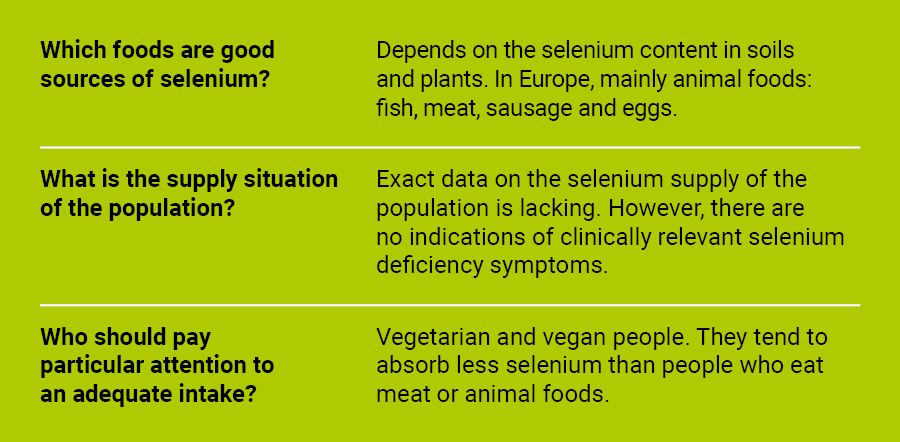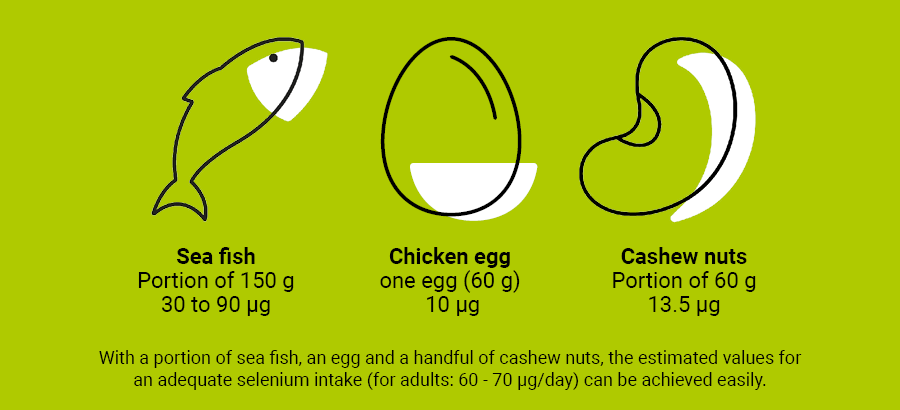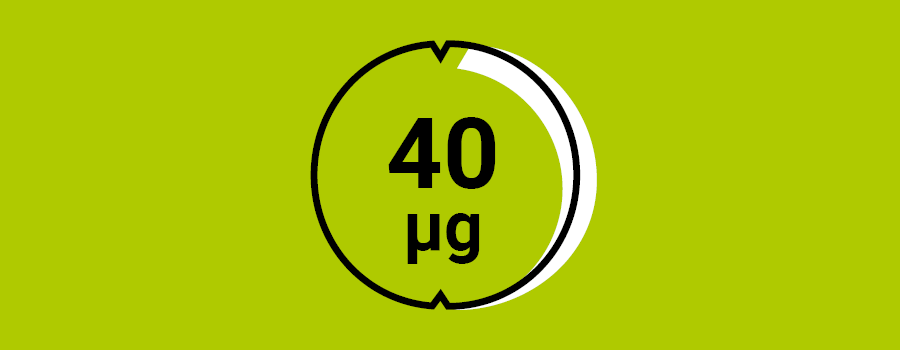You are here:
Selenium
Selenium is one of the essential trace elements. In food, it occurs mainly in the form of selenium-containing amino acids - in plant foods mostly as selenomethionine and in animal foods as selenocysteine. Since the selenium concentrations in food depend on the concentrations in the soil and thus on the selenium uptake of plants and animals, they can vary greatly depending on the region. In Germany, fish, meat, sausage and eggs are the best natural sources of selenium.
In brief:
 |
Selenium has many different functions in the organism, which it usually performs as an integral component of proteins. For example, it helps protect cells from oxidative damage, is involved in the regulation of cell growth as a component of enzymes and is essential for normal thyroid function.
Good sources of selenium:
 |
The German Society for Nutrition (DGE) recommends a daily intake of 30-70 micrograms (µg) of selenium in the diet - an amount that is generally achieved through a balanced diet.
Proposed maximum level for the addition of selenium to food supplements (per daily dose of an individual product):
 |
In order to provide consumers with a significant additional nutrient intake via food supplements when needed and at the same time protect well-supplied people from excessive intake, the German Federal Institute for Risk Assessment (BfR) recommends not adding more than 40 µg of selenium per daily dose to a food supplement.
7/11/2023
Opinion
(1)| Date | Title | Size |
|---|---|---|
|
15.03.2021 BfR Opinion No. 009/2021
|
Updated recommended maximum levels for the addition of vitamins and minerals to food supplements and conventional foods |
478.3 KB
|

